Features
COVID-19 represents an unprecedented blow to cultural life; social distancing just is not compatible with full-scale live performance. Theatres, concert halls, festivals, galleries and museums have been silent. And despite a welcome government rescue package, an upcoming generation of actors, artists, comedians, dancers, designers, singers and writers often had to seek alternative forms of employment.
In the early days of the pandemic, during the first lockdown, the actress Fiona Shaw spoke of ‘culture as everything, a way of travelling, even at home’. She was speaking to mark the launch of the Boundless Creativity project, which has provided real-time intelligence and comprehensive data on the impact of the coronavirus across the UK’s arts, cultural and creative sectors.
Yet, leading figures from public and private organisations, large and small, up and down the country, say that culture has fought back and kept us going. Life in lockdown proved distinctly unsettling, like living in a science fiction movie not knowing the ending.
Life in lockdown proved distinctly unsettling, like living in a science fiction movie not knowing the ending....But it has been to culture people turned...Despite their closed doors, organisations adapted and innovated...just when we needed them most
But it has been to culture that people turned, to process what was happening and to express their emotional responses. Despite their closed doors, organisations adapted and innovated, whether to educate and entertain or to comfort and console, just when we needed them most.
Their ability to do so derived in part from the fact we have at our disposal more advanced technology than ever before. The digital world was already moving very fast before the crisis, forcing us to look at the economy of tomorrow, into which citizens will have to move. If no one knows exactly what the ‘new normal’, after Covid will look like, the UK’s cultural and creative industries are providing some tantalising glimpses, especially in the realm of augmented and mixed reality.
In the words of the Classicist, Professor Mary Beard, ‘We will look back to these dark and cloudy times as the moment when we really did harness technology to open up the best of what arts and culture have to offer on a wider and grander scale.’
The evidence we have gathered shows a marked increase in digital cultural consumption during lockdown, despite problems of unequal broadband access and digital literacy. And public research spending choices should reflect the innovative capacity of creative industries.
If no one knows what the ‘new normal’, after Covid will look like, the UK’s cultural and creative industries are providing tantalising glimpses...And public research spending choices should reflect the innovative capacity of creative industries
Twice as many under-45s have engaged in cultural activities online, compared with the over-45s. And digital technologies have turned consumers into producers via platforms such as Instagram and YouTube. But, across the entire age range, casual and marginal users have been converted into more intensive users of technology in search of satisfying digital cultural experiences.
Watching filmed performances, looking at art online, attending Zoom readings of plays, or adopting a pop star’s avatar in a video game; there has been a striking diversification of what is on offer.
Two-thirds of Britons now think it is possible to have a meaningful cultural experience online. Not all forms of cultural product have translated, however. Digital is not a substitute for live performance.
Artists have sometimes chafed at its constraints. Content needs to be adapted, or entirely rethought, for digital platforms, and online experiences work best when they have intimacy and authenticity. Yet, many of those to whom we spoke expect virtual reality and reality itself to evolve alongside each other, with performance to live audiences integrated with streaming to global ones. This hybrid future is likely to be a distinctive marker of the UK’s remarkably adaptable cultural sector.
The extraordinary demand we have witnessed in the past year for cultural products, services and experiences points to the potential for post-Covid recovery to be powered by the creative industries.
The extraordinary demand we have witnessed in the past year for cultural products, services and experiences points to the potential for post-Covid recovery to be powered by the creative industries.
Biomedical science is tackling the primary physical effects of the virus, the arts, cultural and creative sectors can help tackle its secondary social and economic effects.
The key recommendation of our report, is that in the forthcoming autumn spending review an equivalent effort be made in the domain of R&D for creative technology as is made for other digital spheres. Where creative meets ‘tech’ is the place where great cultural and material value will be derived in the next 20 years.
There is a compelling and consequential research agenda in exploring how to reach new global audiences digitally, how to broaden digital access for producers and consumers, how to overcome entry barriers to the digital market faced by freelancers and smaller creative organisations, and how to bring the benefits of cultural access and participation where they are most needed, including for those struggling with the pandemic’s effects on mental health.
Lives, as well as livelihoods, would be transformed by a major new cross-sectoral and collaborative drive for ‘science for creativity’: university researchers in the arts and humanities joining forces with the latest digital and data science, in partnership with a powerhouse of the UK’s economy.
Biomedical science is tackling the primary physical effects of the virus, the arts, cultural and creative sectors can help tackle its secondary social and economic effects
There is precedent for this, with UK Research and Innovation’s Creative Clusters and Audience of the Future programmes transforming university interactions with their cultural hinterlands and the bringing cutting-edge immersive technology into museums, theatre, animation and gaming. These programmes provide a springboard for something even more ambitious.
The pandemic has brought into sharp focus the true value of one of the UK’s crown jewels, its creative industries. If tough spending choices on R&D are around the corner, we would do well to keep that in mind.
Andrew Thompson is chair of global and imperial history at the University of Oxford and co-chair, with Oriel College Provost, Lord Neil Mendoza, of Boundless Creativity.
Boundless Creativity is sponsored by the Arts and Humanities Research Council and the Department for Culture, Media and Sport.
Professor Sir Andrew Pollard, Director of the Oxford Vaccine Group and Professor of Paediatric Infection and Immunity, takes a moment to reflect on one billion doses of the Oxford coronavirus vaccine released worldwide.
With falling Covid-19 cases all across the UK, the wild positivity in the media, and yesterday’s announcement from AstraZeneca that they have passed 1 billion doses manufactured of our Oxford vaccine, you could be forgiven this week for thinking that it is all over - but it isn’t.
The world is in the third wave of the pandemic with global case numbers of Covid-19 rising rapidly, just not here. I don’t want to sound too gloomy given the remarkable position in which we find ourselves, especially with cases falling because of growing immunity in our population from the vaccines, likely combined with Summer behavioural changes that reduce opportunities for spread.
Here on our highly vaccinated islands, while we shouldn’t be complacent or skittishly intoxicated by optimism, it is reasonable today to be cautiously hopeful. We are in a much better position than at any time in the past 18 months. For those who are vaccinated, the risk of getting seriously ill or dying is now very very low. That link between infections in the community and hospitalisation is weak. The vaccines are doing their stuff.
It is critical to recognise that the virus will continue to spread around the world, and whilst it does, those who are unvaccinated, everywhere, even here, will remain at risk.
It is critical to recognise that the virus will continue to spread around the world, and whilst it does, those who are unvaccinated, everywhere, even here, will remain at risk.
In the UK, it is now only a small proportion of adults who remain without the armour provided by vaccination, but in many low-income countries, that is almost everyone. Globally, more than half a million cases and 9,000 deaths will occur today.
While this shows there is still a lot more to do, you may be surprised to hear that the teams behind the vaccine were absolutely fizzing yesterday. Why? Because we crossed an astonishing, uplifting and almost unthinkable milestone. 1 billion doses of our Oxford vaccine have been distributed to over 170 countries through our partnership with AstraZeneca and Serum Institute of India.
For the small group of dedicated researchers who worked on the development of the Oxford vaccine, this is a glorious moment to savour in our endeavour to make a vaccine for the world. But we also pay tribute to the bravery, commitment and determination of AstraZeneca to fight against the normal commercial model, in partnership with Oxford University and 20 global manufacturing partners, to get the vaccine out there as quickly as possible, on a not-for-profit model, for the benefit of humanity.
But that is enough celebration for now, while there are many unvaccinated people who are desperately waiting for the next billion doses. We must approach this next milestone with the same passion, commitment and zeal as we have this first.
Five graduate students currently studying at Oxford have been awarded £1,000 grants from the Vice Chancellor’s COVID-19 African Innovation Seed Fund for entrepreneurial projects aimed at addressing global challenges stemming from the pandemic.
Professor Louise Richardson, Oxford's Vice Chancellor, said, ‘I am proud to see how the five students have reimagined their research to address urgent global challenges created by the pandemic. Whilst completing their graduate courses in the midst of a global pandemic, they have unleashed their creativity and insight to support the most vulnerable in our societies.’
The COVID-19 African Innovation Seed Fund grants were awarded in partnership with the Oxford University Africa Society, during the 2021 Oxford Africa Conference. The five winners are reimagining their research and using their expertise to accelerate access to education, health services, and safe drinking water.
Held virtually in May this year, and introduced by Dr Tedros Adhanom, Director General of the WHO, the Conference highlighted innovations and progress in health, economics, climate and politics in Africa.
With their specific knowledge and engagement with the African context, they are uniquely positioned to tap into the vibrant Oxford innovation ecosystem to create purpose-focused solutions...The winners truly represent the explosion of talent that is in the African continent
Dr Watu Wamae
Dr Elisha Ngetich, President of the Africa Society, and a current DPhil candidate at Oxford said, ‘Innovation is the cornerstone of Africa’s future. It makes me extremely proud to see the cutting edge research and innovation being done by these students at Oxford and the potential this could have for the continent.’
Dr Watu Wamae, AfOx Health Innovation Platform lead, said, ‘The creativity and phenomenal ability of the five students to pivot their research to address real challenges in Africa is commendable. With their specific knowledge and engagement with the African context, they are uniquely positioned to tap into the vibrant Oxford innovation ecosystem to create purpose-focused solutions that will positively impact livelihoods. The winners truly represent the explosion of talent that is in the African continent.’
The Winners
Increasing access to Preterm care in a time of a pandemic
Josephine Agyeman-Duah

Josephine is a 3rd year DPhil candidate in the Nuffield Department of Women’s & Reproductive Health. Her research seeks to evaluate the effectiveness of a neurodevelopmental assessment tool for babies born pre-term. Such babies are at higher risk of neo-natal morbidity and developing mental health problems.
With the support received from the Vice Chancellor’s COVID-19 African Innovation Seed Fund, Josephine will be able to buy equipment and train more health assessors for the virtual platform.
She said, ‘My motivation for applying to the Oxford 2021 V-C COVID-19 African Innovation Seed Fund was to leverage the opportunity to promote a research idea by an African scholar at Oxford and to support an idea which will be a huge benefit to the African continent and globally. The availability of a platform for neurodevelopmental assessment in the time of a pandemic or where access to health centres is limited, will boost the possibility of scaling up neurodevelopmental screening.’
This innovation will have huge benefit even beyond the pandemic. Virtual screenings will allow health practitioners to reach more patients in a timely manner.
TGI career mobile app
Segun Afolaranmi

Segun is taking an MSc in Integrated Immunology. He is the co-founder of The Ganglion Initiative, an organisation supporting career development and entrepreneurship among secondary school students in Nigeria.
The pandemic significantly affected Nigeria’s already weak schools career counselling services. Segun’s team is building an innovative mobile app. It will allow The Ganglion Initiative to reach more students and schools digitally, providing comprehensive and tailored information on career and scholarship opportunities.
He said, ‘This award is in honour for the dedicated volunteers at The Ganglion Initiative who work tirelessly to achieve our vision, and the funding will support our efforts to reach more students by deploying the online tool.’
The app will simplify information on seemingly complex topics, such as choosing a career and applying to university, through explainer videos and puzzles. Users will also be able to chat with directly with volunteers enrolled in higher education.
Their aim is to reach at least 20,000 Nigerian students. The support from the Vice Chancellor’s COVID-19 African Innovation Seed Fund will help complete the product design of the app as well as online and offline publicity of the app.
Improving Water Pricing Strategies Amidst Ghana's COVID-19 Free Water Policy
Emmanuel Opoku

Emmanuel is taking an MSc in Water Science, Policy and Management. His innovation aims to ensure that the most vulnerable households in Ghana have access to safe drinking water amidst the pandemic.
Emmanuel aims to devise a strategy to subsidise water prices for the most vulnerable water users, by assessing their water affordability. Household water affordability is determined by finding the ratio of household’s expenses on water to their total expenditure/income. Based on the 2018 UN’s economic growth report, households whose water affordability is below 10% are considered vulnerable.
He said, ‘The Increasing Block Tariff water pricing strategy has been widely adopted by utilities in Sub-Saharan Africa, but it imposes differential affordability burden on low-income households and hinders utilities from fully recovering costs. This is a good opportunity for not only determining befitting subsidy beneficiaries but for developing cost reflective tariffs designs that could be adopted globally.’
Emmanuel has developed an innovative approach, calculating water affordability in 100 households over a 10-day period. From his analysis, households whose water affordability is below the 10% threshold will be marked as vulnerable. This will allow the Government to target vulnerable areas and provide proportionate subsidies on tariffs. .
His innovation has the potential to create long-lasting improvements in water-pricing techniques in Ghana. The support from the Vice Chancellor’s COVID-19 African Innovation Seed Fund will cover the travel and research costs.
Energy for Health Initiative
Godwin Nwangele

Godwin is taking an MSc in Energy Systems in Oxford’s Department of Engineering Science and his innovation aims to develop smart technology that connects solar power to hospitals.
One of the challenges facing the healthcare sector in Nigeria, and other African countries, is limited access to reliable electricity supplies. This challenge has been compounded by the pandemic, because the infrastructure needed to transport safely and store the vaccines requires steady supplies of power.
He said, ‘Winning the Vice Chancellor’s innovation award is a proud achievement for me. It is heartwarming to know that my idea is selected to build a resilient healthcare system in Africa. I am now motivated to work harder to complete this research, prototype it, and move to the implementation phase.’
This initiative seeks to conduct research using a Smart Sequential Loader (SSL) to provide solar power to hospitals, while cutting costs and achieving capacity optimisation. Not only will this be beneficial for vaccine equipment, but for the healthcare system and for those who depend on it.
Godwin will be using the Vice Chancellor’s COVID-19 African Innovation Seed Fund award to fund this research and obtain the device that will address this challenge. He also plans to partner with others on the African continent to roll out this solution beyond Nigeria.
The Right of Access to Educational Materials: International and Domestic Law
Sanya Samtani

Sanya is a final year DPhil student in Law. Her research offers constitutional tools to ensure access to educational material for people living in poverty and with disabilities in South Africa.
Despite the Bill of Rights in South Africa guaranteeing all people the right to education, the Copyright Act of 1978 prohibits people living in poverty and people living with sensory disabilities from access to educational materials such as textbooks.
She said, ‘Facilitating access to educational materials for all is key to knowledge generation and innovation, which in turn leads to a flourishing democratic society. South Africa's Copyright Amendment Bill is a positive step in the direction of inclusive access, grounded in constitutional values and the Bill of Rights.’
Sanya’s research highlights how these laws prevent millions of South Africans, who cannot afford a book, from accessing the material through photocopying. And that the law, which does not allow format shifting, precludes widespread use of assistive technologies, thus also denying access to people living with disabilities. As South Africa has entered into several lockdowns and tuition has been online, the copyright law, and the challenges it presents, have been exacerbated.
Sanya plans to use the grant to publish her research as an openly accessible monograph. This will be hugely valuable to those who are championing copyright reform and the access to education and learning materials in South Africa.
By Dr David M. Lyreskog, Postdoctoral Researcher, Department of Psychiatry
People across the world are looking forward to the greatest sporting event on earth: the Olympic Games. Although it may look and feel quite different this time due to the COVID-19 pandemic, it serves as a source of inspiration for millions of adults, children and young people alike. The athletes competing in the coming weeks mount a tremendous responsibility on their shoulders. Representing the pinnacle of human performance, Olympians are not merely idolized for their athletic abilities, but also often praised for their moral character, sportsmanship, and/or mental resilience.
We like to think that athleticism and doing sports is good for us, as it can offer a sense of achievement, and teach us valuable skills such as perseverance and team spirit. People are inspired by incredible athletes and their achievements; however, do these athletes make appropriate targets of aspiration – for young people in particular?
Exercise vs sports
Exercise and top-level sports differ in some significant ways. Where exercise has proven over and over again to be an excellent means to promote not only physical health, but also well-being and mental health, professional sports may not be very healthy.
During the Olympics alone, about 11% of the athletes incur injuries. In elite sports teams, the prevalence of depression and anxiety is sometimes as high as 45%, and in adolescent elite sports the prevalence of eating disorders is approximately 14%. The pursuit of performance – of excellence – does not appear to be a healthy one.
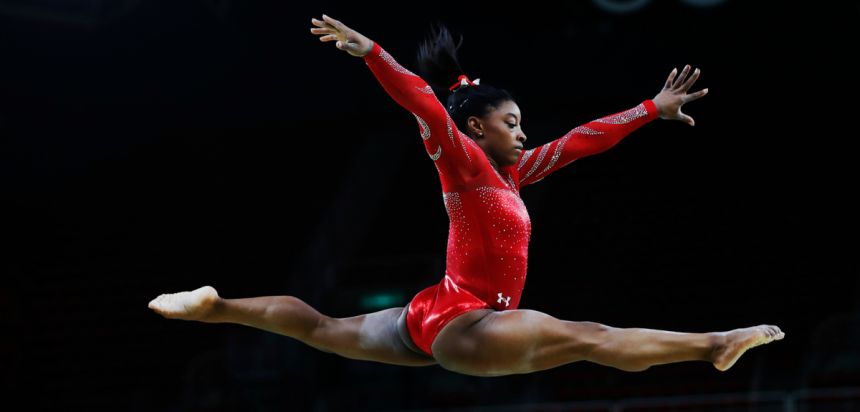 Olympic gold-medallist Simon Biles recently withdrew from gymnastic events at the Tokyo 2020 Olympics to 'focus on her mental health'.
Olympic gold-medallist Simon Biles recently withdrew from gymnastic events at the Tokyo 2020 Olympics to 'focus on her mental health'. I have to focus on my mental health...we have to protect our minds and our bodies and not just go out and do what the world wants us to do...There were a couple of days when everybody tweets you and you feel the weight of the world.
Simone Biles, Team USA gymnast
Exercise is commonly prescribed for reducing symptoms of depression and anxiety in young people. Alongside getting adequate amounts of sleep and adhering to a balanced and healthy diet, exercise arguably qualifies as one of the most important low-risk interventions to promote mental and physical health. And sports is probably the most common way for young people to exercise consciously, be it for physical or mental health, or just for fun. But that does not mean that all sports is exercise. It goes without saying that there are massive differences between your everyday sport enthusiast who exercises for health, and an Olympic-level athlete.
Health vs performance
While most of us are probably aware that Olympic-level sports may not always be healthy, it is less clear to us exactly when exercise for health turns into sports for performance and excellence. Indeed, one of the alluring features of sports is the direct feedback indicating improvement: the possibility of playing better than last week, running further and swimming faster than yesterday – doing better – is part of why we get out there at all.
But therein lies the crux: doing better performance-wise does not necessarily mean doing better in terms of mental and physical health. In fact, it can be detrimental to it. Sports is a difficult concept in this domain, because there is no clear line for us to pass between exercise on one side, and performance-based and risk-inducing training on the other. And of course, that line will be differently placed for different individuals.
Promoting physical and mental health
What are the key mechanics which underlay shifts in motivation, and how can we direct everyday sports and exercise towards levels and types of activity which promote physical and mental health?
It is clear that more research needs to be done in this area to help young people in particular strike a balance in exercise and sports. Perhaps the best we can do for now is to try to be aware of the motives and behaviours from ourselves and those around us, and to try to support healthy forms of exercise in the general population. Because, as impressive and inspiring as the performances on the Olympic stage are, they are not doing wonders for the health of the athletes.
All the focus on children over the last year has been about lost education, keeping them busy and the impact of isolation. Right now, it is holidays and exams. But we should be more worried – a lot more worried.
Lucie Cluver, Oxford Professor of Child and Family Social Work, says Dr Susan Hillis, from the US Centers for Disease Control and Prevention, was so worried, she could not sleep. The thing is, children may not be dying from COVID-19, but millions have already or will lose parents and caregivers before the pandemic ends, creating an epidemic of orphan-hood in the wake of the virus. And that was keeping Dr Hillis awake at night.
Children may not be dying from COVID-19, but millions have already or will lose parents and caregivers before the pandemic ends, creating an epidemic of orphan-hood in the wake of the virus.
‘The global response has focused on adults, because that is who the disease is striking,’ says Professor Cluver. ‘But there has been no thought at a global scale about the impact of COVID deaths on children. This needed a concerted effort.’
Not long after that phone call, an international team of academics and policymakers came together, and the results of their work is published in the Lancet.
It is obvious when you think of it. Just as with AIDS and Ebola, the virus was going to leave children around the world without parents – and/or grandparents. Devastating for families and children and very costly for countries, in every sense. COVID-19 is far from over.
The global response has focused on adults, because that is who the disease is striking...But there has been no thought at a global scale about the impact of COVID deaths on children. This needed a concerted effort...we needed robust evidence
Professor Lucie Cluver
Dr Hillis emphasised they needed to work swiftly. But, before they could ask for help, they needed to know the size of the problem – and the locations.
'We needed robust evidence before we could ask for a strong response,’ says Professor Cluver.
What they really needed was the world’s best modellers, to work out the scale of the crisis. Professor Cluver had a not-entirely-scientific thought: maybe a dad at her children’s nursery in St Anne’s College could help? In normal times, you might ask a toddler’s dad for a playdate. But Dr Seth Flaxman was also a statistician at Imperial College, part of the team crunching COVID numbers, and soon to come to Oxford’s Department of Computer Science. So it was not quite as outlandish as it sounds.
As soon as he understood, Dr Flaxman brought together a team to work on the problem at Imperial and Oxford – including Professor Christl Donnelly, who works at both universities. Their series of papers, looking at the impact of COVID on countries around the world and at the fallout from new variants, were guiding national responses.
In previous studies, on disease burden, they had calculated global estimates, by combining dozens or hundreds of national surveys. But no surveys were being undertaken on children affected by the deaths of their parents or caregivers, so demographic methods were needed to combine data on average family sizes with COVID death information.
Given the heavy burden of deaths among older age groups, Professor Cluver says, ‘We needed to think about grandparents as well. There has been a huge increase over the last decade in children being looked after by grandparents. In many households, they are primary caregivers, and provide essential financial support.’
We focused on 21 countries with the highest numbers of COVID deaths, looked at age and fertility patterns and extrapolated to the rest of the world to find minimum estimates of the number of children affected
Dr Seth Flaxman
Dr Flaxman explains, ‘We focused on 21 countries with the highest numbers of COVID deaths, looked at age and fertility patterns and extrapolated to the rest of the world to find minimum estimates of the number of children affected.’
Alongside the calculations, the project has brought together international institutions including the CDC, the WHO, the World Bank, and USAID. They are leading today’s publication of the research and accompanying report, calling for immediate action from global governments.
The team is well aware what is at stake... According to Professors Lorraine Sherr and Charles Nelson, research shows, institutions are really terrible for children...it is much better to support the extended family to care for them.
The team is well aware what is at stake. With memories of the impact of the AIDS epidemic in Africa, when there was a rush to put orphans into institutions, they are concerned this does not result in a rush to separate children from families again.
UCL’s Professor Lorraine Sherr and Harvard Professor Charles Nelson insist, ‘Research shows, institutions are really terrible for children...it is much better to support the extended family to care for them. Almost every child has a family member who could do that.’
On a purely financial basis, the cost of institutionalising the COVID orphans is seven times greater than the cost of keeping them at home. With today’s Lancet release, Dr Flaxman and Professor Cluver hope policymakers will act to avoid the crisis becoming a long term catastrophe. It means taking country-by-country action to keep children out of institutions and with their families.
On a purely financial basis, the cost of institutionalising the COVID orphans is seven times greater than the cost of keeping them at home.
Dr Flaxman and Professor Cluver hope policymakers will act to avoid the crisis becoming a long term catastrophe
‘There needs to be support for children,’ says Professor Cluver. ‘But there are effective and affordable responses. If we make sure that families have some financial support, that children can go to school, and that they have help with parenting in these difficult circumstances, then children do better in many important aspects of their lives. But we need to act fast.’
There are some steps everyone can take. If parents and grandparents are vaccinated, then their children are protected too. When each of us gets our vaccination, we can donate to the World Health Organisation’s COVID solidarity response fund.
But help also needs to come from the international community, and both Dr Flaxman and Professor Cluver are optimistic about the prospects.
This is a call to action to support children who have lost loved ones. Our calculations can help policymakers turn good intentions into appropriately scaled help where it is needed most
Professor Christl Donnelly
‘Even small amounts of support help,’ says Professor Cluver. ‘A grant of $21 a month can benefit a family... a phone-based parenting program with support is $6 per child. The costs are manageable.’
Dr Flaxman’s open-source online calculator shows minimum estimates for the numbers of orphaned children per country and a country graph indicates the increase in numbers during the pandemic. At the time of writing, the numbers already orphaned in South Africa, for instance, was 101,400. There are about 10,000 in the UK who had lost at least one care giver.
There are already one million orphans, and 1.8 million children who have lost a caregiver...But with most of the developing world not expected to get vaccines until 2025, there could be five to seven million by the time the pandemic is over...since we submitted the paper, the numbers of orphaned children keep going up and up
Professor Cluver
‘There are already one million orphans, and 1.8 million children who have lost a caregiver’ Cluver explains. ‘But with most of the developing world not expected to get vaccines until 2025, there could be five to seven million by the time the pandemic is over.’
She adds, ‘It’s been a race against time. Even since we submitted the paper, the numbers of orphaned children keep going up and up. Something needs to be done - urgently.’
Professor Donnelly explains, ‘This is a call to action to support children who have lost loved ones. Our calculations can help policymakers turn good intentions into appropriately scaled help where it is needed most.’
Global minimum estimates of children affected by COVID-19-associated orphanhood and deaths of caregivers: a modelling study. (Published Online July 20, 2021). Available once the link goes live: at https://doi.org/10.1016/S0140-6736(21)01253-8)
prepared by the Global Reference Group on Children Affected by COVID-19: Joint Estimates and Action: Susan D Hillis*, H Juliette T Unwin*, Yu Chen*, Lucie Cluver, Lorraine Sherr, Philip S Goldman, Oliver Ratmann, Christl A Donnelly, Samir Bhatt, Andrés Villaveces, Alexander Butchart, Gretchen Bachman, Laura Rawlings, Phil Green, Charles A Nelson†, Seth Flaxman†
- ‹ previous
- 16 of 248
- next ›

 By
By 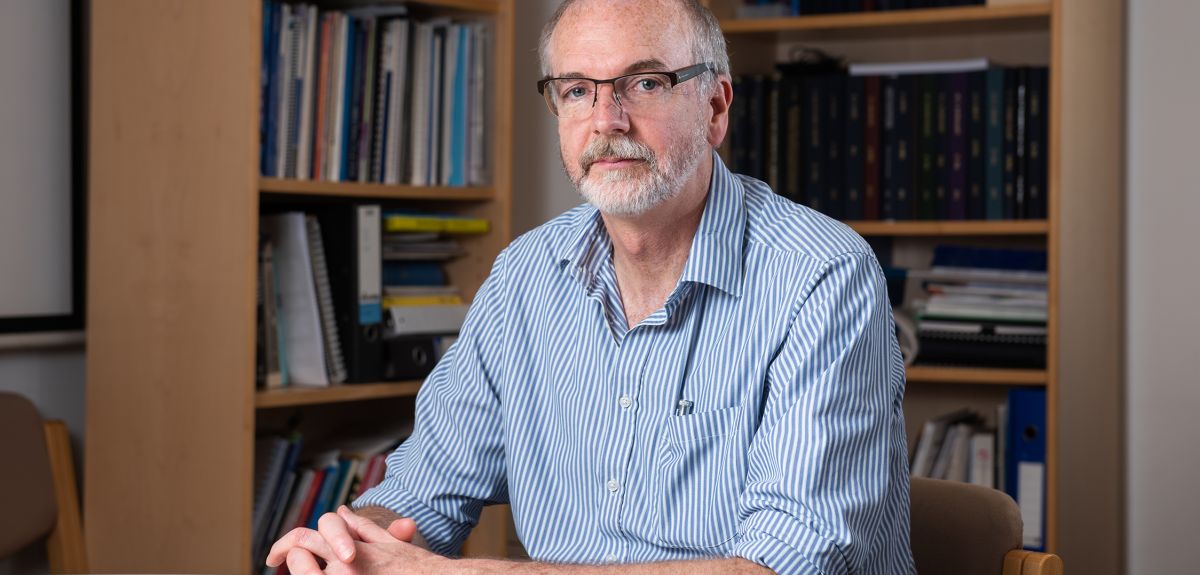

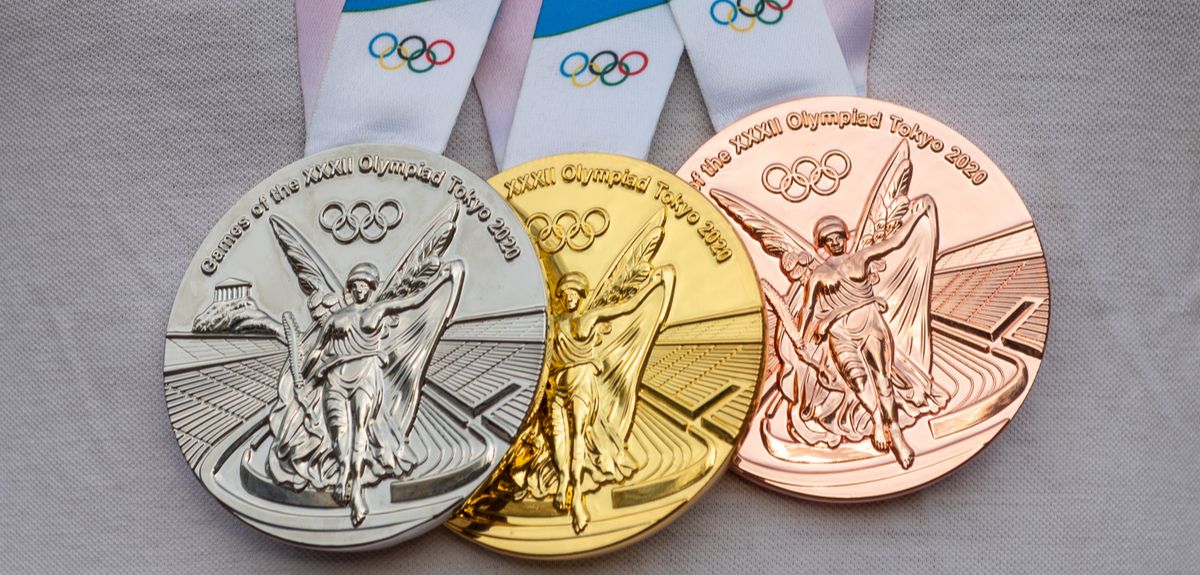
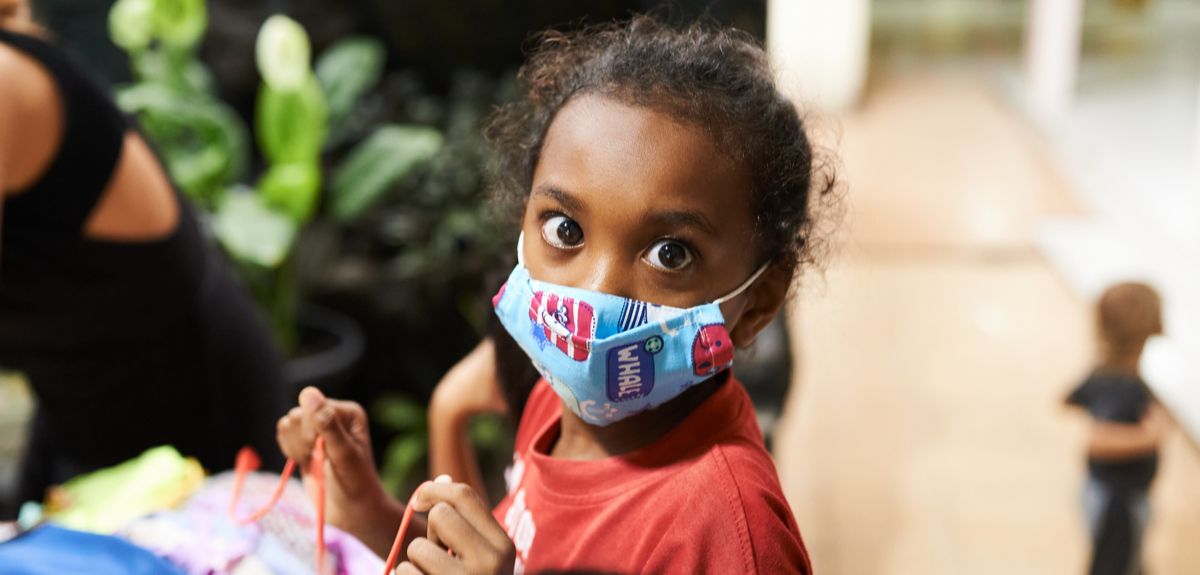
 The hidden cost of AI: In conversation with Professor Mark Graham
The hidden cost of AI: In conversation with Professor Mark Graham  Astrophoria Foundation Year: Dr Jo Begbie reflects on the programme’s first year
Astrophoria Foundation Year: Dr Jo Begbie reflects on the programme’s first year World Malaria Day 2024: an interview with Professor Philippe Guerin
World Malaria Day 2024: an interview with Professor Philippe Guerin From health policies to clinical practice, research on mental and brain health influences many areas of public life
From health policies to clinical practice, research on mental and brain health influences many areas of public life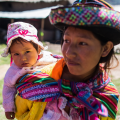 From research to action: How the Young Lives project is helping to protect girls from child marriage
From research to action: How the Young Lives project is helping to protect girls from child marriage  Can we truly align AI with human values? - Q&A with Brian Christian
Can we truly align AI with human values? - Q&A with Brian Christian  Entering the quantum era
Entering the quantum era Can AI be a force for inclusion?
Can AI be a force for inclusion? AI, automation in the home and its impact on women
AI, automation in the home and its impact on women